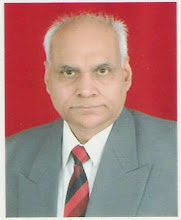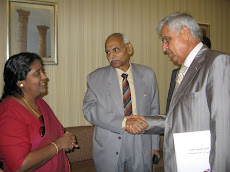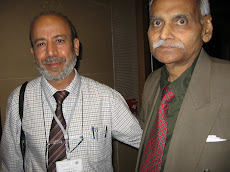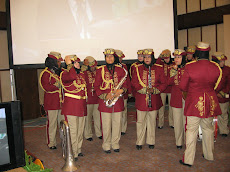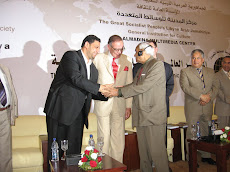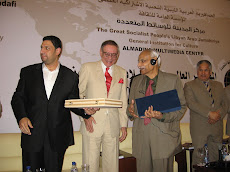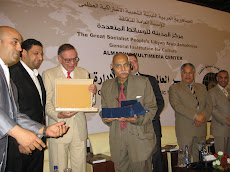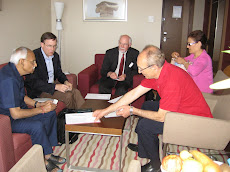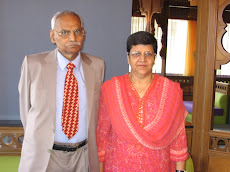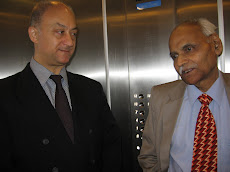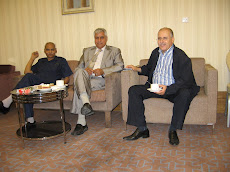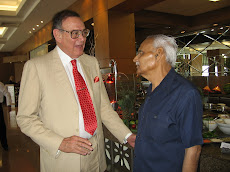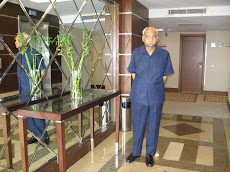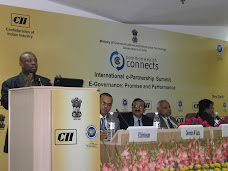Barack Obama’s Agenda for E-governance:
Open Government is Its Main Plank But What About the Roadblocks?
by
Dr D.C.Misra*
_____________________________________________________________________________________
All eyes are on the U.S.President-elect Barack Obama, who will assume the charge of his office on January 20, 2009. He has also set an ambitious agenda for e-governance. Obama has very successfully used information technology (IT) in his presidential campaign. For example, according to reports, on www.barackobama.com, more than 280,000 people created accounts, users created over 6,500 grassroots volunteer groups and organized more than 13,000 off-line events using the website and over 15,000 policy ideas were submitted through the website. The Internet operation was looked after by 95 people. Obama has built a treasure trove of database of more than 10 million supporters. Since change was the main plank of Obama’s election campaign, the transition site has also been named after change, set up at http://change.gov/. More is expected from him in the field of information technology (IT) and e-governance once he enters the White house.
What then is Obama’s agenda for e-governance? In a nutshell it is Open Government. He, however, has many items in his agenda but the following ten items appear to be particularly noteworthy:
(i)Transparent and Connected Democracy: The agenda proposes “to integrate citizens into the actual business of government” by a number of measures including “ Making government data available online in universally accessible formats to allow citizens to make use of that data to comment, derive value, and take action in their own communities, and “Lifting the veil from secret deals in Washington with a web site, a search engine, and other web tools that enable citizens easily to track online federal grants, contracts, earmarks, and lobbyist contacts with government officials.”
(ii)Open Government: All available technologies and methods are proposed to be used to open up the federal government, “creating a new level of transparency to change the way business is conducted in Washington and giving Americans the chance to participate in government deliberations and decisionmaking in ways that were not possible only a few years ago.” Most modern communications infrastructure will be used to realize this vision. The agenda visualizes “opening up the closed practices of governance to greater citizen engagement and participation.”
(iii)Federal Chief Technology Officer (CTO): The agenda proposes to “appoint the nation’s first Chief Technology Officer (CTO) to ensure that our government and all its agencies have the right infrastructure, policies and services for the 21st century. The CTO will ensure the safety of our networks and will lead an interagency effort, working with chief technology and chief information officers of each of the federal agencies, to ensure that they use best-in-class technologies and share best practices.”
(iv)Openness of the Internet: Realising the importance of the Internet as “most open network in history,” the agenda proposes to maintain the openness of the Internet. The agenda “strongly supports the principle of network neutrality to preserve the benefits of open competition on the Internet. Users must be free to access content, to use applications, and to attach personal devices. They have a right to receive accurate and honest information about service plans.” The agenda “supports the basic principle that network providers should not be allowed to charge fees to privilege the content or applications of some web sites and Internet applications over others.”
(v)Protection of Children: An important item on the agenda is protection of children on the Internet. The agenda proposes to “work to give parents the tools to prevent reception of programming that they find offensive on television and on digital media. Again, it will “encourage improvements to the existing voluntary rating system, exploiting new technologies like tagging and filtering, so that parents can better understand what content their children will see, and have the tools to respond.” The agenda treats a “sanity not censorship” approach of the Common Sense Media, a private entity, as a model.
(vi)Public Media 2.0: The agenda “will encourage the creation of Public Media 2.0., the next generation of public media that will create the Sesame Street of the Digital Age and other video and interactive programming that educates and informs. The agenda “will support the transition of existing public broadcasting entities and help renew their founding vision in the digital world.”
(vii)Right to Privacy: The agenda notes that “Dramatic increases in computing power, decreases in storage costs and huge flows of information that characterize the digital age bring enormous benefits, but also create risk of abuse. We need sensible safeguards that protect privacy in this dynamic new world.” The agenda, therefore, proposes to “strengthen privacy protections for the digital age and will harness the power of technology to hold government and business accountable for violations of personal privacy.”
(viii)Next Generation Broadband: The agenda realizes the importance of broadband in so many words: “Full broadband penetration can enrich democratic discourse, enhance competition, provide economic growth, and bring significant consumer benefits. Moreover, improving our infrastructure will foster competitive markets for Internet access and services that ride on that infrastructure.” This is sought to be achieved by (i) redefinition of broadband (currently defined at low 200 kbps), (ii) universal service reform, and (iii) public-private partnership.
(ix)Protection of Intellectual Property Rights at Home and Abroad: The agenda recognizes the importance of intellectual property rights by stating that “Intellectual property is to the digital age what physical goods were to the industrial age” and emphasizes the “need to update and reform our copyright and patent systems to promote civic discourse, innovation and investment while ensuring that intellectual property owners are fairly treated.” The agenda proposes to protect intellectual property rights at home and abroad.
(x)Health Care: The agenda proposes to “invest $10 billion a year over the next five years to move the U.S. health care system to broad adoption of standards-based electronic health information systems, including electronic health records” and “phase in requirements for full implementation of health IT and commit the necessary federal resources to make it happen.” It cites a study by the Rand Corporation that found if most hospitals and doctors offices adopted electronic health records, up to $77 billion of savings would be realized each year through improvements such as reduced hospital stays, avoidance of duplicative and unnecessary testing, more appropriate drug utilization, and other efficiencies.”
Many of these items are routine, mundane and incremental. Nevertheless three items of his agenda are striking and deserve close look.
First, Open Government. This will be a very challenging task. The issues here are the extent to which government will open up consistent with the requirements of security and protection of privacy of citizens, and making government transparent and accountable. Obama, of course, has taken up the gauntlet when he makes a daring commitment in his agenda: (he) “will use the most current technological tools available to make government less beholden to special interest groups and lobbyists.” In a speech in Des Moines, IA on November 10, 2007 Obama had forcefully declared:
“I am in this race to tell the corporate lobbyists that their days of setting the agenda in Washington are over. I have done more than any other candidate in this race to take on lobbyists — and won. They have not funded my campaign…and they will not drown out the voices of the American people when I am president.”
Blueprint for Change: Obama and Biden’s Plan for America declares: “Obama and Biden will close the revolving door between the executive branch and K-Street lobbying shops. Their appointees will serve the American people, not their own financial interests.” It will be quite interesting to watch as to how Obama and his team goes about it as lobbyists are firmly entrenched in Washington, D.C.
Second, Citizen Participation in Government Decision-Making. An integral part of open government, it is also a very challenging area as despite living in democratic regimes citizens have no participation in decision-making, a task performed singularly by the legislators who, once elected, forget about the citizens until the next election. The nearest governments have gone for citizen participation in government decision-making is to seek citizen’s views on government’s specific proposals. But this is usually an eye wash as citizens views may be taken as a mere formality without being taken into account in decision-making, leave alone having an impact in decision-making.
If citizen participation in government decision-making is going to be meaningful, citizen’s views must be able to influence decision-making. What would be the modalities of such citizen participation in government decision-making? Would a citizen in such circumstances become a tier-2 legislator? And what would be its legal implications?
Third, Federal Chief Technology Officer (CTO). This has been talked about for quite some time. It is going to be a very challenging task for the incumbent as co-ordination is no cakewalk. On the contrary, it is quite problematic as CTO/CIO will protect his turf and the method of working. Quite often he is immune to external advice. The agenda proposes to suitably legally empower him. In such a case he will be a Super-CTO or Super CIO and his authority is likely to be resented by agency CTO/CIO.
Here is, however, wishing Obama and his team all the best in implementing his ambitious agenda.
____________________________________________________________________________________
* I.A.S.(Retd.). Former Chairman, task Force or IT Policy for Delhi and now Independent E-governance Consultant. Email: dc_misra@hotmail.com, Tel: 011-22452431,
Blog: http://egov-india.blogspot.com/.
Tuesday, November 11, 2008
Tuesday, November 04, 2008
Local political online forums cannot support direct democracy, finds a study
Local political online forums cannot support direct or full participatory democracy, finds a new research study.
Dunne (2008)* has found that, "firstly, local political online forums cannot support direct or full participatory democracy and such forums are mainly situated within liberal thin democratic models. Secondly, forums which are placed within local government websites have a greater chance of being inactive. Finally, non-government supported forums can support a type of discussion which increases citizen's participation in local political discussions.Check his Ph.D. thesis at
http://groups.dowire.org/groups/research/files/f/930-2008-10-31T173650Z/PhD.pdf
Dr D.C.Misra
November 4, 2008
____________________________________________________________________________________
*Dunne, Kerill (2008): The value of using local political online forums to reverse political disengagement, Thesis submitted for Ph.D. degree in Sociology, Department of Sociology, Faculty of Arts and Human Sciences, University of Surrey, Surrey, United Kingdom, June, http://groups.dowire.org/groups/research/files/f/930-2008-10-31T173650Z/PhD.pdf (accessed: November 4, 2008)
Dunne (2008)* has found that, "firstly, local political online forums cannot support direct or full participatory democracy and such forums are mainly situated within liberal thin democratic models. Secondly, forums which are placed within local government websites have a greater chance of being inactive. Finally, non-government supported forums can support a type of discussion which increases citizen's participation in local political discussions.Check his Ph.D. thesis at
http://groups.dowire.org/groups/research/files/f/930-2008-10-31T173650Z/PhD.pdf
Dr D.C.Misra
November 4, 2008
____________________________________________________________________________________
*Dunne, Kerill (2008): The value of using local political online forums to reverse political disengagement, Thesis submitted for Ph.D. degree in Sociology, Department of Sociology, Faculty of Arts and Human Sciences, University of Surrey, Surrey, United Kingdom, June, http://groups.dowire.org/groups/research/files/f/930-2008-10-31T173650Z/PhD.pdf (accessed: November 4, 2008)
Subscribe to:
Comments (Atom)




